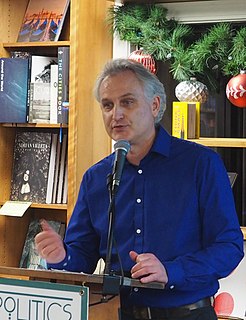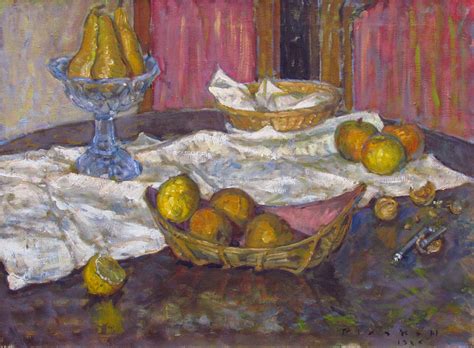A Quote by James Geary
Metaphor creates a kind of conceptual synesthesia, in which we understand one concept in the context of another.
Quote Topics
Related Quotes
A text makes the word more specific. It really kind of defines it within the context in which it is being used. If it is just taken out of a context and presented as a sort of object, which is what - you know, which is a contemporary art idea, you know. It is like an old surrealist idea or an old cubist idea to take something out of context and put it in a completely different context. And it sort of gives it a different meaning and creates another world, another kind of world in which we enter.
The facts of nature are what they are, but we can only view them through the spectacles of our mind. Our mind works largely by metaphor and comparison, not always (or often) by relentless logic. When we are caught in conceptual traps, the best exit is often a change in metaphor not because the new guideline will be truer to nature (for neither the old nor the new metaphor lies "out there" in the woods), but because we need a shift to more fruitful perspectives, and metaphor is often the best agent of conceptual transition.
It's actually now, more common to see conceptual productions of Shakespearian, which Hamlet is played as a Nazi, or a homosexual, or whatever concept is being laid over the play, then it is to see a production of Shakespeare in which there is no conceptual overlay and the play is simply being presented on its own terms.
Moreover, metaphor is typically viewed as characteristic of language alone, a matter of words rather than thought or action. For this reason, most people think they can get along perfectly well without metaphor. We have found, on the contrary, that metaphor is pervasive in everyday life, not just in language but in thought and action. Our ordinary conceptual system, in terms of which we both think and act, is fundamentally metaphorical in nature.
What great philosophers do for us is not to hand out such an all-purpose system. It is to light up and clarify some special aspect of life, to supply conceptual tools which will do a certain necessary kind of work. Wide though that area of work may be, it is never the whole, and all ideas lose their proper power when they are used out of their appropriate context. That is why one great philosopher does not necessarily displace another, why there is room for all of them and a great many more whom we do not have yet.
The concept of individual rights is so prodigious a feat of political thinking that few men grasp it fully - and two hundred years have not been enough for other countries to understand it. But this is the concept to which we owe our lives - the concept which made it possible for us to bring into reality everything of value that any of us did or will achieve or experience.
Where these reduced (operational - E.W.) concepts govern the analysis of the human reality, individual or social, mental or material, they arrive at a false concreteness - a concreteness isolated from the conditions which constitute its reality. In this context, the operational treatment of the concept assumes a political function. The individual and his behavior are analyzed in a therapeutic sense - adjustment to his society. Thought and expression, theory and practice are to be brought in line with the facts of his existence without leaving room for the conceptual critique of these facts.
Lakoff's idea is that most of our thought is guided by underlying conceptual mappings between two domains that share some content, that overlap in the sets of their attributes. ... Contrary to the assertions of Lakoff and some of the cognitive metaphor theorists, people can read through to an underlying mapping, but only when the surface metaphor is new to them.
Without metaphor the handling of general concepts such as culture and civilization becomes impossible, and that of disease and disorder is the obvious one for the case in point. Is not crisis itself a concept we owe to Hippocrates? In the social and cultural domain no metaphor is more apt than the pathological one.




































